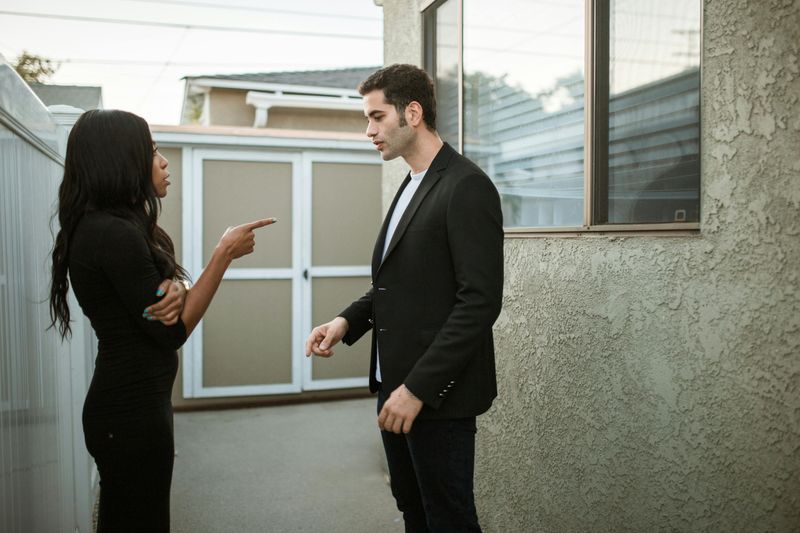14 Signs Your Relationship Is No Longer Working

Relationships take work, but sometimes they reach a point where no amount of effort can save them. Recognizing when a relationship has run its course is crucial for your emotional well-being. These warning signs can help you identify if your partnership has hit a dead end, allowing you to make informed decisions about your future.
1. Communication Has Become Painful

Talking shouldn’t feel like walking through a minefield. When simple conversations regularly turn into arguments or you find yourself carefully selecting every word to avoid conflict, something fundamental has broken down.
Partners in healthy relationships speak openly without fear of judgment or angry outbursts. They listen to understand, not just to respond. When this mutual respect disappears, meaningful connection becomes impossible.
Many couples try to ignore communication problems, hoping they’ll magically resolve themselves. They won’t. The silence between you speaks volumes about what’s really happening beneath the surface.
2. You’re Living Separate Lives

Remember when you couldn’t wait to share your day with each other? Now you barely know what’s happening in your partner’s life. Your schedules rarely align, and honestly, you prefer it that way.
Healthy couples naturally create space for individual growth while maintaining a connected life together. But when you consistently make plans that don’t include your partner and feel relief rather than disappointment when they’re busy, you’ve crossed into dangerous territory.
The emotional and physical distance doesn’t bother you anymore—it feels more comfortable than togetherness. This growing apart isn’t just a phase; it’s a sign your paths are diverging permanently.
3. Trust Has Been Shattered

Trust forms the foundation of any strong relationship. Once broken—whether through infidelity, repeated lies, or broken promises—rebuilding it requires tremendous effort from both partners. The painful truth? Sometimes that foundation can’t be repaired.
Constant suspicion has become your new normal. You check their phone when they’re not looking or question their whereabouts. Or maybe you’re the one being interrogated, feeling like you’re always under surveillance.
Without trust, intimacy withers. The relationship becomes an exhausting game of detective and suspect rather than a partnership of equals. Both roles are damaging, and neither leads back to healthy love.
4. Contempt Has Replaced Respect

Eye-rolling, sarcastic remarks, and mockery have replaced kindness in your interactions. These behaviors aren’t just annoying habits—they’re expressions of contempt, which relationship experts consider the most destructive pattern in partnerships.
When you find yourself regularly thinking your partner is beneath you or not worthy of basic respect, the emotional connection has been severely damaged. Perhaps you speak to each other in ways you’d never dream of talking to friends or colleagues.
Mutual respect serves as the cornerstone of loving relationships. Without it, partners become adversaries rather than allies. If contempt has become your default setting, the relationship has entered dangerous territory.
5. Your Values No Longer Align

It’s natural for people to evolve, and sometimes that evolution takes partners in different directions. Perhaps you’ve adopted new spiritual beliefs, reconsidered having children, or realigned your priorities in ways your partner struggles to understand.
Core values shape our most important decisions. When partners fundamentally disagree on money management, family planning, or lifestyle choices, daily life becomes a battlefield of competing visions. Small compromises can bridge some gaps, but major value differences often create unbridgeable chasms.
The growing disconnect isn’t anyone’s fault—you’ve simply evolved in different directions. Forcing alignment where none exists leads to resentment and sacrificing your authentic self.
6. Your Partner’s Happiness No Longer Matters

Being invested in your partner’s well-being is essential in love. When their happiness or hardships don’t touch your emotions anymore, it signals a critical change. You might notice a lack of concern on their bad days or frustration when they succeed instead of feeling happy.
Empathy connects us to those we love. Its absence signals emotional detachment that’s difficult to reverse. Perhaps you’ve stopped asking about their day or sharing your own experiences because it feels pointless.
This emotional numbness often develops gradually as a protection mechanism after repeated disappointments. By the time you notice complete indifference has settled in, the emotional bonds may have already dissolved beyond repair.
7. You’re Constantly Walking on Eggshells

Fear shouldn’t be part of a loving relationship. If you’re constantly monitoring your words, adjusting your behavior, or hiding your true feelings to avoid triggering your partner’s anger or criticism, you’re living in an unhealthy dynamic.
This perpetual state of anxiety changes who you are. Friends might notice you’ve become quieter or that you check with your partner before making simple decisions. You might feel a knot in your stomach when they enter the room.
Healthy relationships provide safety to be your authentic self. When you can’t relax around your partner, your body stays in fight-or-flight mode, creating chronic stress that damages both mental and physical health. This tension isn’t sustainable long-term.
8. The Future Looks Bleak Together

In healthy relationships, partners look ahead with hope for their shared future. When imagining that future feels impossible or even frightening, it signals a deep change in your connection.
You might catch yourself daydreaming about life without your partner or making future plans that don’t include them. Perhaps you’ve stopped using “we” when talking about next year or stopped including them in your long-term vision.
Hope connects us to tomorrow. When hope for a better relationship consistently feels unrealistic despite genuine efforts to improve things, it may be time to acknowledge the painful truth: some relationships aren’t meant to last forever.
9. You’ve Stopped Fighting For Each Other

Contrary to popular belief, conflict isn’t always bad. Healthy couples fight because they care enough to address problems. When arguments completely disappear, it often means one or both partners have given up.
This emotional surrender happens gradually. You start letting significant issues slide because “what’s the point?” The energy required to work through problems feels wasted. Even when hurt, you say “it’s fine” because the alternative—having another fruitless conversation—seems worse.
Fighting for the relationship means believing it’s worth saving. When that belief disappears, apathy takes its place. This quiet resignation might feel peaceful compared to constant conflict, but it’s actually the sound of a relationship flatling.
10. You’re Seeking Emotional Connection Elsewhere

Everyone needs emotional support. When your relationship no longer provides it, you naturally seek it elsewhere. This doesn’t necessarily mean physical cheating, but emotional boundaries start blurring in concerning ways.
Maybe you’ve started confiding in a coworker about personal matters you once would have shared with your partner. Perhaps you find yourself texting friends about your feelings instead of turning to your significant other. The emotional energy you once invested in your relationship now flows toward others.
These outside connections aren’t inherently wrong, but when they replace rather than complement your primary relationship, they signal a significant void. Your heart is telling you something important about where you feel truly seen and understood.
11. You Feel Lonely Even When Together

There’s nothing quite as isolating as feeling alone while sitting next to someone who’s supposed to be your closest companion. This paradoxical loneliness cuts deeper than being physically alone because it highlights the emotional chasm between you.
You might spend evenings in the same room without meaningful interaction, each absorbed in separate activities. Conversations remain superficial, never touching the vulnerable places where true connection happens. The silence between you feels heavy rather than comfortable.
This emotional isolation often happens gradually. One day you realize the person beside you feels like a stranger, despite knowing their daily routines and habits. This disconnection, when persistent, signals the relationship no longer fulfills its most basic purpose—companionship.
12. Your Friends and Family Have Noticed

Those who care about you often notice relationship problems before you’re ready to acknowledge them. When multiple people express concern about how you’re being treated or how unhappy you seem, their perspective deserves consideration.
Loved ones might point out that you’ve changed—perhaps you’re less confident, more anxious, or simply not yourself anymore. Maybe they’ve witnessed concerning interactions between you and your partner that you’ve normalized over time.
Outside perspectives provide valuable reality checks when we’re too emotionally invested to see clearly. While others’ opinions shouldn’t dictate your relationship choices, consistent feedback from people who want the best for you offers important insight that shouldn’t be dismissed.
13. You’ve Stopped Being a Team

Strong couples face life’s challenges together—they’re partners in the truest sense. When this fundamental alliance breaks down, you find yourselves handling problems separately or, worse, seeing each other as the problem.
Decision-making becomes contentious rather than collaborative. Financial discussions turn into power struggles. Parenting approaches conflict rather than complement each other. The sense that you’re on the same side has disappeared.
This breakdown in partnership often appears during crises that should bring couples closer. Instead of turning toward each other for support during difficult times, you turn away, handling stress independently. When “me” consistently takes precedence over “we” in how you navigate life’s challenges, the relationship has lost its cooperative foundation.
14. You Feel Relief When They’re Not Around

The moment your partner leaves the house shouldn’t feel like exhaling after holding your breath underwater. Yet for many in struggling relationships, their absence brings a palpable sense of relief—the tension in your shoulders releases, you breathe more easily, and you finally feel like yourself again.
You might find yourself looking forward to their business trips or making plans when you know they’ll be busy. Being alone feels more peaceful than being together. The version of you that exists when they’re gone feels more authentic and relaxed.
This relief reveals an uncomfortable truth: their presence has become a source of stress rather than comfort. When being apart consistently feels better than being together, the relationship has become a burden rather than a refuge.

Comments
Loading…